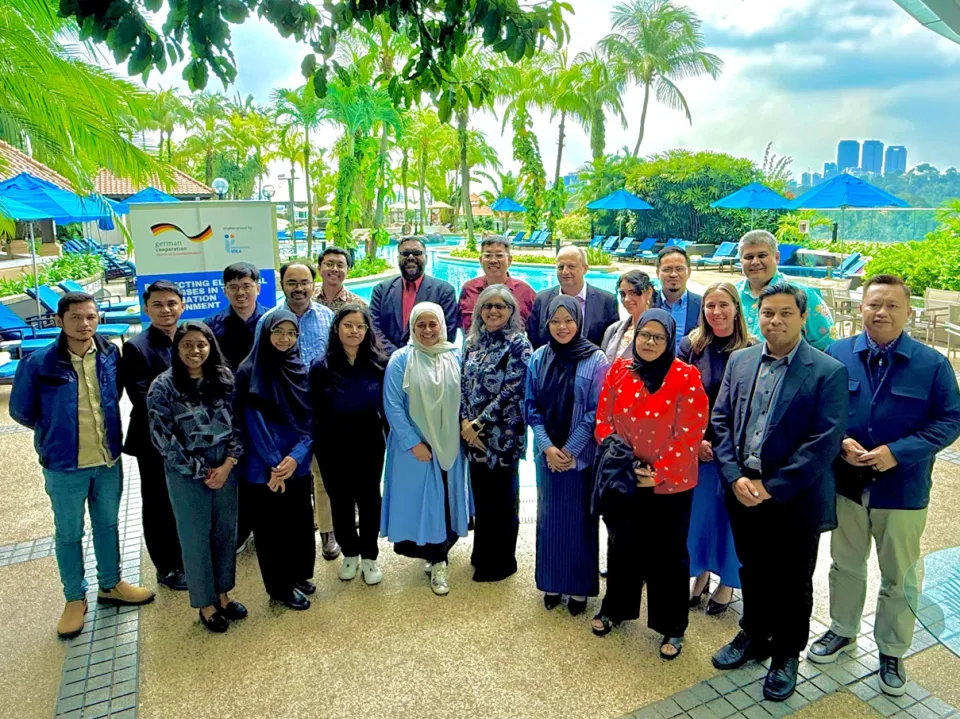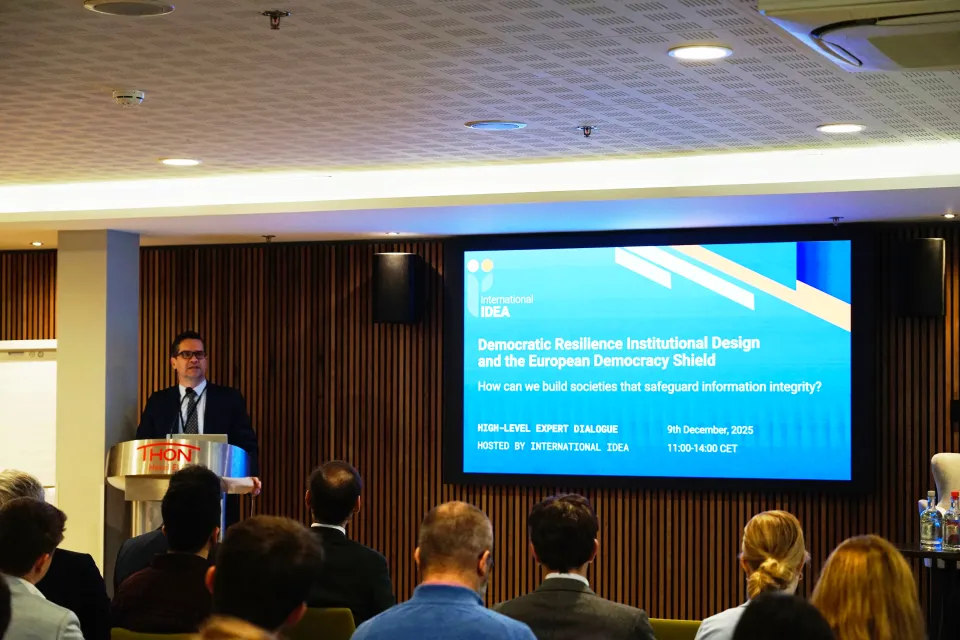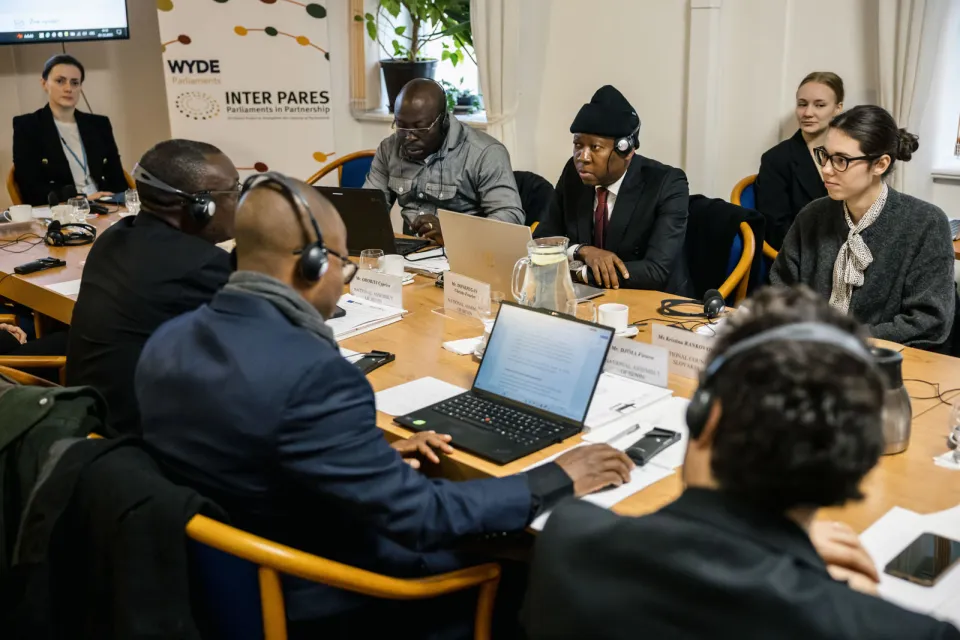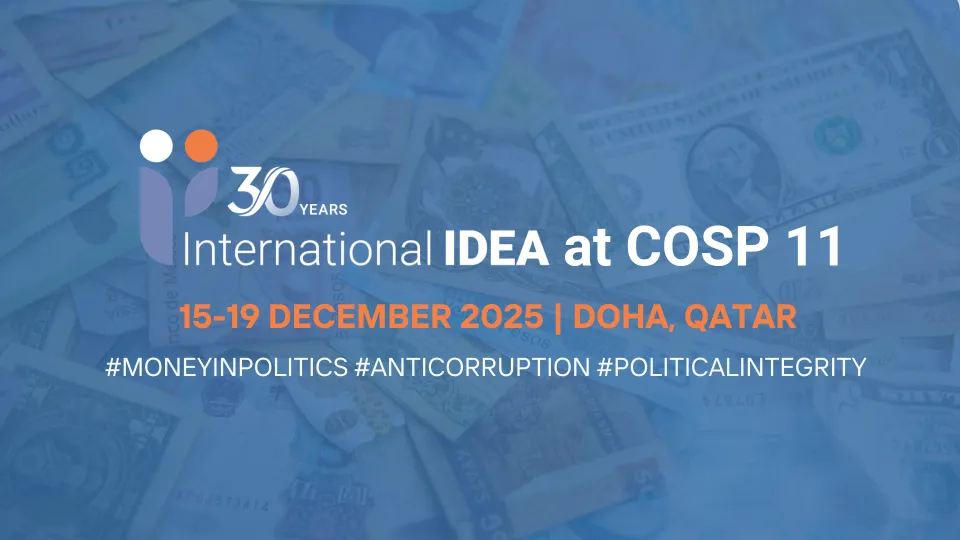Assessment sheds new light on the performance of the Philippine Constitution 33 years after its ratification
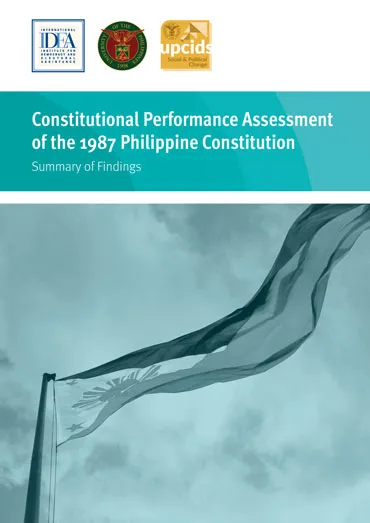
To commemorate the 33rd anniversary of the ratification of the Philippine Constitution, the International Institute for Democracy and Electoral Accountability (International IDEA), and the University of the Philippines’ Center for Integrative and Development Studies (UP CIDS), launched the Constitutional Performance Assessment of the 1987 Philippine Constitution: Summary of Findings. The publication presents the key findings of an evidence-based assessment of the 1987 Constitution, wherein a team of scholars from the Department of Political Science of the University of the Philippines Diliman adapted and applied International IDEA’s constitutional performance assessment methodology.
‘’There is a long road ahead for constitutional reform in the Philippines. Regardless of the path that the Philippines chooses, it is important to generate knowledge and understanding on the 1987 Constitution’s performance to date. The findings of this constitution performance assessment will hopefully allow for the design of an evidence-based constitution-building process with a clear scope’’, said Leena Rikkilä Tamang, the Regional Director for Asia and the Pacific at International IDEA.
Thirty-three years after the promulgation of the Constitution, debates on whether to revise, repeal, or replace the Constitution continue, giving rise to a need for more informed public discussions on the constitutional change process. There has been a tendency to promote constitutional solutions, like federalism, to the governance challenges the Philippines is facing without a deep understanding of what the sources of these challenges are.
The 1987 Constitution was born out of the Philippines’ efforts to restore democracy after the authoritarian regime of Ferdinand Marcos. The document was written to enshrine concepts of representative democracy and the separation of powers, establish independent constitutional commissions, promote local autonomy, and restore legislative powers vis-á-vis the presidency. The UP CIDS team, therefore, identified these goals and empirically measured the Constitution’s successes and gaps in achieving them.
In order to create sound constitutional solutions, the study made it its goal "to look at the current Constitution and assess the performance of its goals and provisions. Any shortcomings in the Constitution should be identified first before possible changes are addressed or proposed", according to Atienza, et al., the authors of the assessment.
The assessment concludes that many of the goals of the Constitution have not yet been substantially achieved. Elections are not yet truly free, open and competitive because of the presence of weak political parties, problems with election laws, such as the party-list system law and the dominance of political dynasties, personality politics and patron–client relations. Although notable progress has been made, there is still limited or thin compliance in terms of promoting substantial democratization; decentralization; social justice, human rights and gender; peace and conflict resolution; and economic development.
The assessment includes recommendations to promote realization of the promises of the Constitution, including democracy, economic growth and rule of law. These recommendations not only include amendments to the Constitution but also the passage of new laws, amendments of existing laws, administrative reforms in specific agencies and stricter implementation of laws.
This publication contributes empirically based assessments and recommendations to enhance debates on the amendments currently proposed to the Constitution. Recognizing that some of these findings may be subject to debate in themselves, the goal is to assist stakeholders—political actors and the public alike—in understanding how the 1987 Constitution has performed, what its shortcomings may be, and whether or not constitutional change is needed in the Philippines today.
The International Institute for Democracy and Electoral Assistance
The International Institute for Democracy and Electoral Assistance (International IDEA) is an intergovernmental organization with the mandate to support and advance democracy worldwide. International IDEA contributes to the public debate on democracy and assists in strengthening process, reforms, institutions and actors that build, advance and safeguard democracy, with a focus on electoral processes; constitution-building processes; and political participation and representation. Mainstreamed across all of our work is gender and inclusion, conflict sensitivity and sustainable development.
For more information, visit www.idea.int
Facebook: https://www.facebook.com/InternationalIDEA
Twitter: https://twitter.com/Int_IDEA, #PHConstitutionAssessment
Programme Contact:
Amanda Cats-Baril, Senior Programme Officer, A.Cats-Baril@idea.int
Media Contacts:
Program on Social and Political Change, UP CIDS, pspc.cids@up.edu.ph
Lynn Simmonds, Communications Manager at International IDEA, L.Simmonds@idea.int
